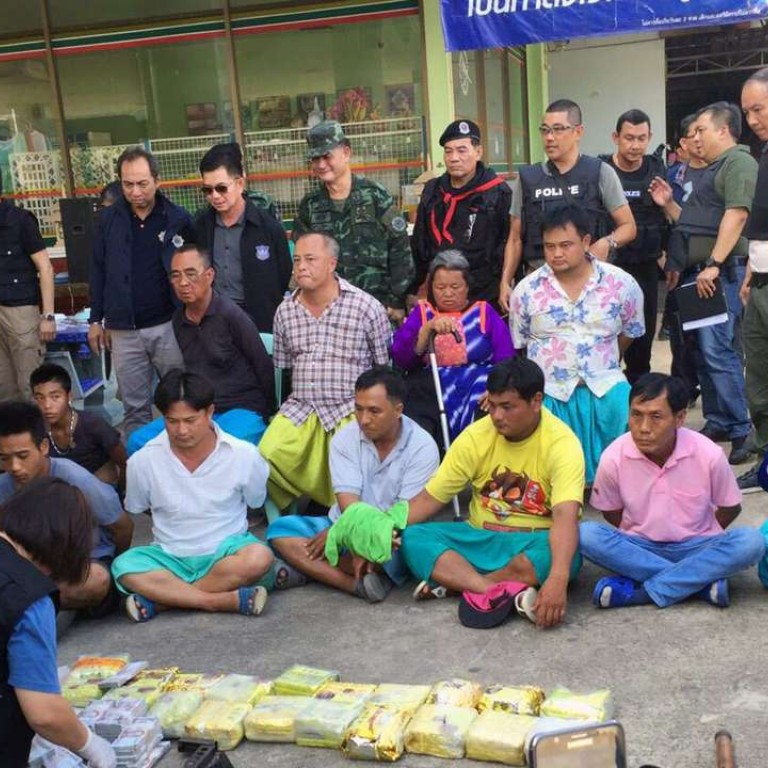
How Thai police went undercover to catch accused Golden Triangle drug kingpin
A controversial and colourful former Kuomintang guerilla fighter long accused of playing a key role in the Golden Triangle drugs trade has been arrested during a sting operation.
Laota Sanli who is believed to be 79, was allegedly caught Tuesday trying to sell 20 kilograms of crystal meth to undercover officers from his home in a village on Thailand’s border with Myanmar.
Its cartels are some of the most prolific drug producers in the world, trafficking heroin, methamphetamine and other synthetic drugs.
Yet high profile arrests are rare.
Compared to their counterparts in Central and Latin America, hit hard by infighting or law enforcement successes, Golden Triangle cartel leaders have remained relatively unmolested for decades.

Police arrested Laota and 13 others, including family members, on Tuesday morning, parading them in front of local media.
Laota sat with his arms behind his back as police laid out cash, pistols, shotguns and plastic wrapped blocks of the drugs.
“We followed and investigated and we did a sting operation,” Police Major General Sommai Kongvisaisuk, said.
“Laota took our money and returned 20 kilograms of crystal meth to us.”
Laota has been arrested before but authorities have never managed to make drug trafficking charges stick. In the early 2000s he spent four years in jail on trafficking charges but was acquitted in 2007.
In a 2011 interview with the Bangkok Post he gave details of his remarkable life.
An ethnic Lisu, a minority from southwest China, Laota said he joined the anti-communist Kuomintang as a child soldier and rose up through the ranks.
He later fought against Thailand’s communist insurgency in the 1970s in exchange for sanctuary.

In the 2011 interview he said he knew Wei Hsueh-kang, a Wa commander with a $2 million United States bounty on his head.
But he denied ever being involved in drug trafficking himself and said he simply traded petrol, food and other supplies with the group.
In recent years he opened an eponymous coffee store - Lao Ta Coffee - visited by more intrepid travellers journeying across Thailand’s north.
Law enforcement agencies have warned that drug production in the Golden Triangle has increased in recent years, with surging methamphetamine smuggling now adding to the traditional illicit opium trade.
According to the United Nations Office on Drugs and Crime (UNODC), meth seizures in East and Southeast Asia near quadrupled between 2009-2014. Opium production has tripled in the last ten years.

.png?itok=arIb17P0)